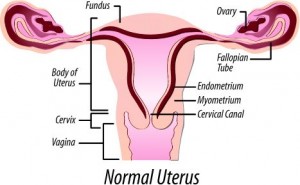Howard Stern’s Sidekick, Robin Quivers, Reveals Cancer Battle

Listeners to the Howard Stern Show expect the unexpected when they tune in.
But this morning’s announcement by Stern’s sidekick Robin Quivers has been fighting cancer for the past 15 months took most listeners by surprise.
In May 2012, Quivers was attending a wedding in Pittsburgh, when she realized she was unable to pee. A doctor drained her bladder, but it happened again. A mass the size of a grapefruit was found in her uterus, and the diagnosis of endometrial cancer (cancer of the uterus) was made.
Initially doctors told Robin that the outlook was bleak: she would probably survive surgery but her quality of would be diminished, and they used words like “prolonging her life” instead of “curing” her. Howard Stern admitted:
I gotta be honest . I thought she was a goner.
But Quivers met Dr. Carol Aghajanian at Memorial Sloan Kettering and Dr. David Agus from University of Soluthern CA, who told her they could treat her and they were aiming for a cure.
Robin underwent two surgeries, chemotherapy and radiation therapy. She tolerated the chemotherapy amazingly well and insisted on working throughout her treatment. Robin did the show from her home for over a year, and only missed three shows during that period.
Stern supported Quivers throughout this process, bringing her baskets of chapstick and gum to help her through the chemotherapy.
Three months ago, her physicians told her that she was “cancer-free.”
What is endometrial cancer?
 The uterus is a pear-shaped, hollow organ in the female pelvis which acts as the womb for a developing infant. The lower, narrow end of the uterus is the cervix, which leads to the vagina.
The uterus is a pear-shaped, hollow organ in the female pelvis which acts as the womb for a developing infant. The lower, narrow end of the uterus is the cervix, which leads to the vagina.
The uterus is made up of muscle, called the myometrium. Inside the myometrium, the uterus is lined by a vascular tissue called the endometrium. The endometrium varies in thickness under the influence of the female hormones estrogen and progesterone, and it is the endometrium that is sloughed and causes bleeding during a menstrual period.
Endometrial cancer is a cancer of the uterus which arises from the endometrial lining. A cancer that affects the myometrium is called a uterine sarcoma. Endometrial cancer is the most common cancer of the female reproductive system in the United States.
The American Cancer Society estimates for endometrial cancer in the United States for 2013 are:
- About 49,560 new cases of cancer of the body of the uterus (uterine corpus) will be diagnosed.
- About 8,190 women will die from cancers of the uterus.
- When all cases of endometrial cancer are looked at together, the 5-year relative survival rate is about 83%.
- Most of these cancers are found at an early stage, which has a 5-year survival rate of over 95%.
(These estimates include both endometrial cancers and uterine sarcomas. About 2% of uterine body cancers are sarcomas, so the actual numbers for endometrial cancer cases and deaths are slightly lower than these estimates.)
Endometrial cancer is rare in women under 40, with most cases occurring in women 50 and older. The average risk of a woman to get endometrial cancer over the course of her life is 1 in 40.
Symptoms of endometrial cancer include :
- unusual vaginal discharge
- pain in the pelvis
- Bleeding or discharge not related to menstruation (periods).
- Difficult or painful urination.
- Pain during sexual intercourse
- Pain in the pelvic area.
These symptoms are not specific to endometrial cancer, so a physician should be consulted if these symptoms are present.
For more information, click here to go to the Resounding Health Casebook on the topic.



























2 Comments